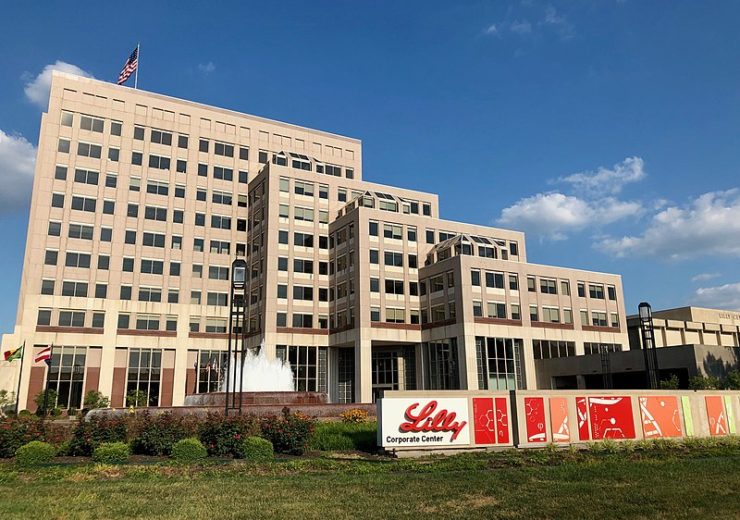Selpercatinib is an oral medicine under development for the treatment of cancers with abnormalities in the rearranged during transfection (RET) kinase

Eli Lilly corporate centre in Indianapolis, Indiana, US. (Credit: Momoneymoproblemz/Wikipedia.)
The US Food and Drug Administration (FDA) has granted priority review for the new drug application (NDA) submitted by the Eli Lilly and Company (Lilly) for its selpercatinib (LOXO-292).
Selpercatinib is used for the treatment of advanced RET fusion-positive non-small cell lung cancer (NSCLC), RET-mutant medullary thyroid cancer (MTC) and RET fusion-positive thyroid cancer.
The company said that its NDA submission for selpercatinib is supported by data from the LIBRETTO-001 Phase 1/2 trial in RET-altered lung and thyroid cancers. The regulatory authority has set a prescription drug user fee act (PDUFA) date in the third quarter of 2020.
Lilly Oncology president Anne White said: “We are pleased the FDA granted priority review status for the NDA for selpercatinib. This represents an important step toward providing a new precision therapy for people living with certain RET-driven cancers.
“Combined with the recent opening of our two Phase 3 selpercatinib clinical trials, we are thrilled with the positive momentum of this program and hope to deliver a practice-changing treatment to patients with RET-driven cancers as soon as possible.”
Selpercatinib was granted orphan drug designation for RET fusion-positive NSCLC
Selpercatinib is a selective oral investigational new medicine, which is currently under clinical development for the treatment of cancers with abnormalities in the rearranged during transfection (RET) kinase.
The company said that RET fusions and mutations will occur across various tumour types, in different frequencies, and its Selpercatinib has been designed to inhibit native RET signalling, along with the acquired resistance mechanisms.
Selpercatinib has been granted orphan drug designation in 2019, for the treatment of RET fusion-positive NSCLC and for the treatment of RET fusion-positive and RET-mutant thyroid cancers.
RET-mutant thyroid cancers include poorly differentiated thyroid cancer, undifferentiated or anaplastic thyroid cancer, MTC and locally advanced or metastatic follicular or papillary thyroid cancer.
The company said that it has initiated two Phase 3 clinical trials of selpercatinib, LIBRETTO-431 for the treatment-naïve RET fusion-positive NSCLC, and LIBRETTO-531 for the treatment-naïve RET-mutant MTC, and will enrol 400 patients for the studies.
